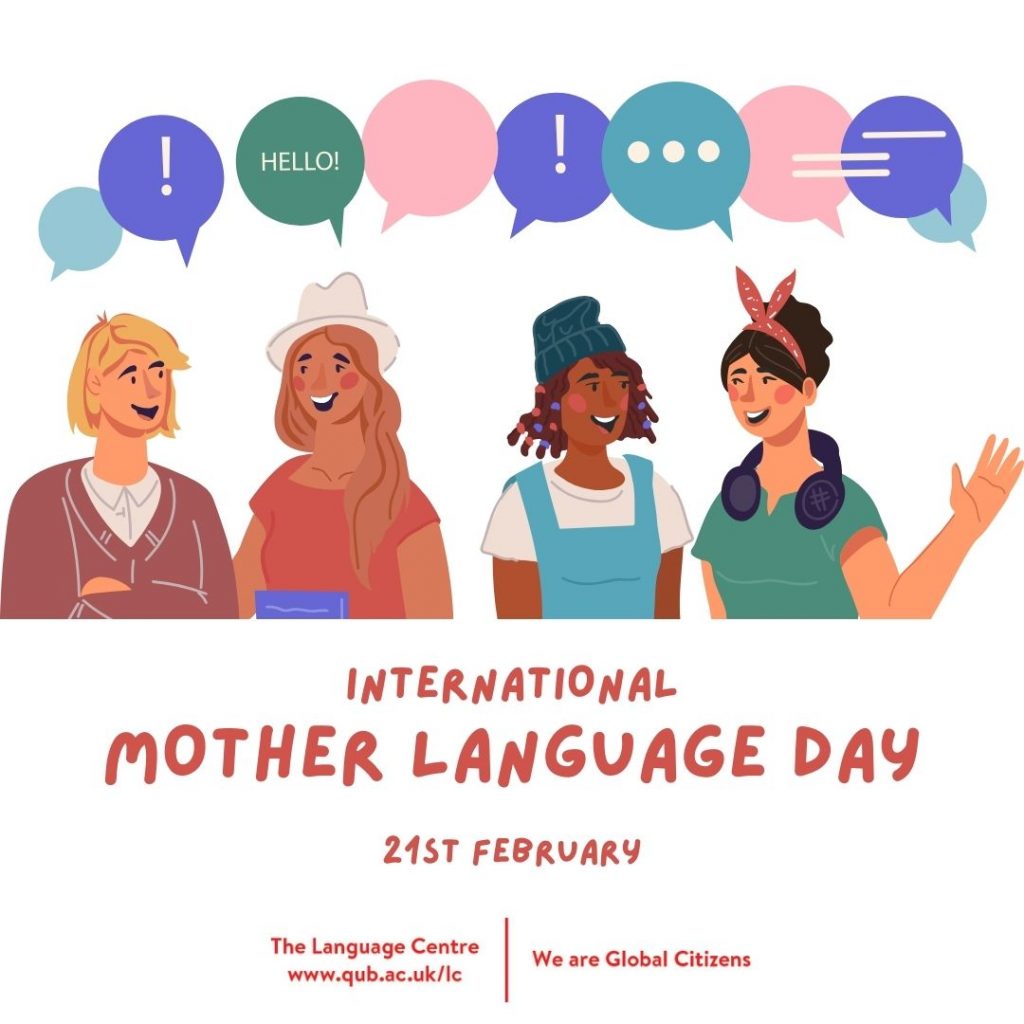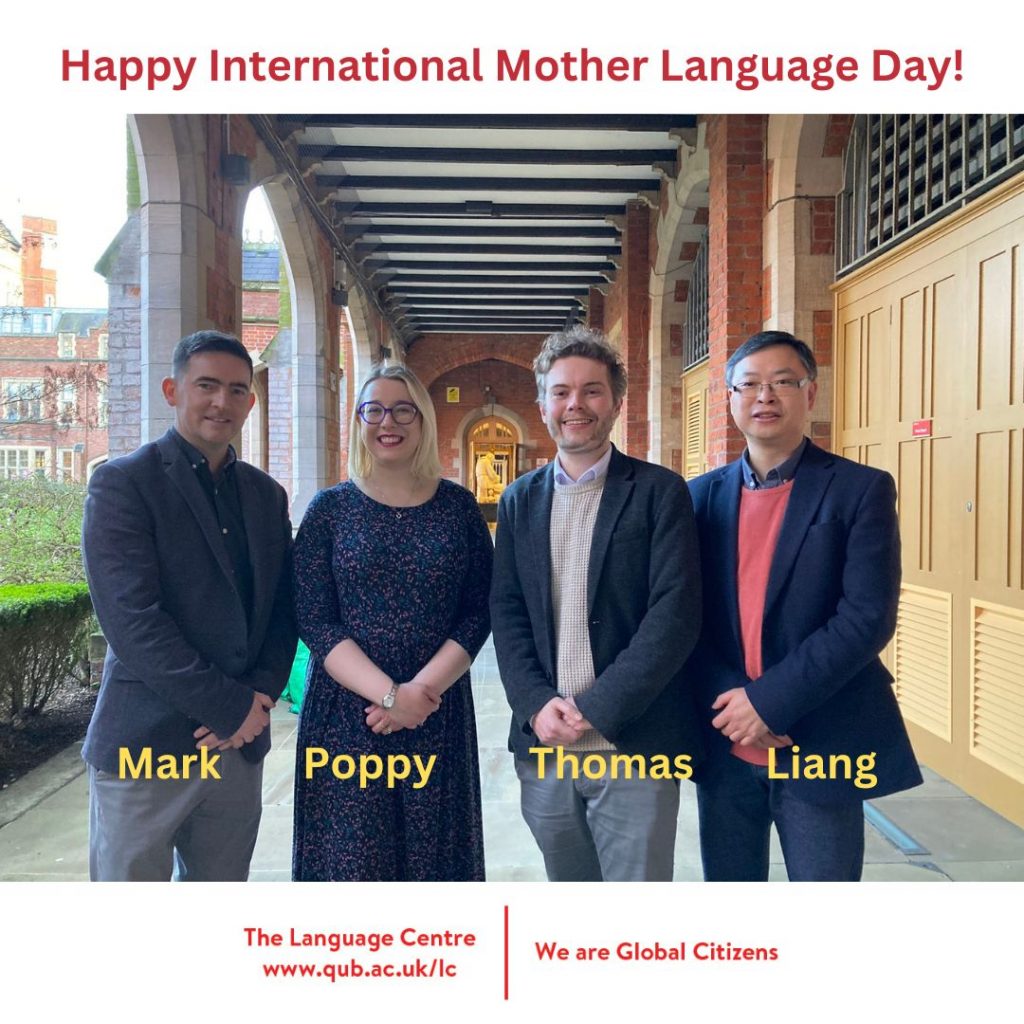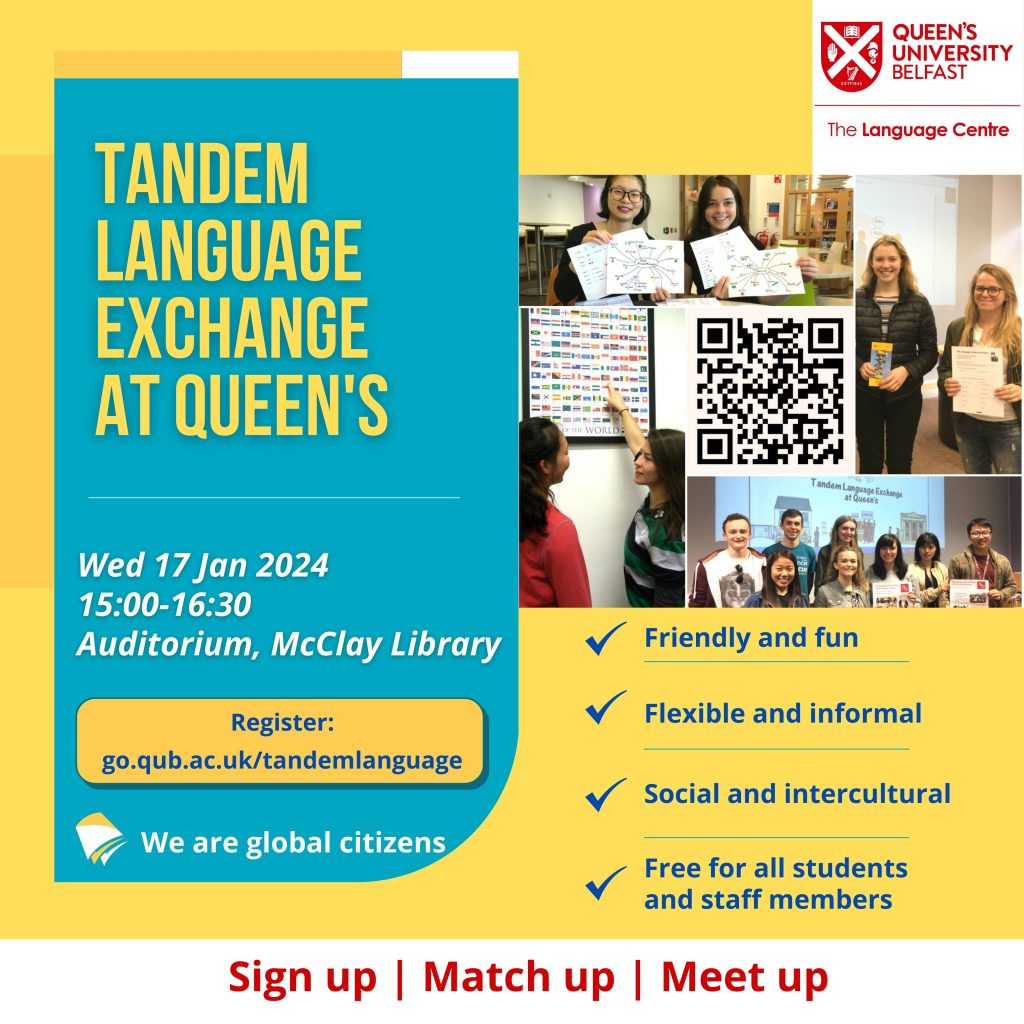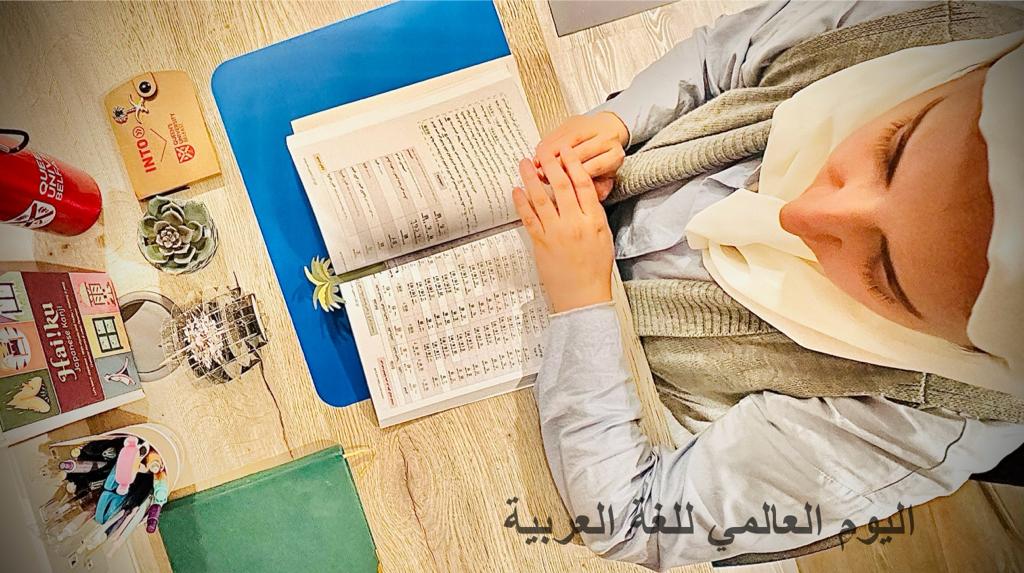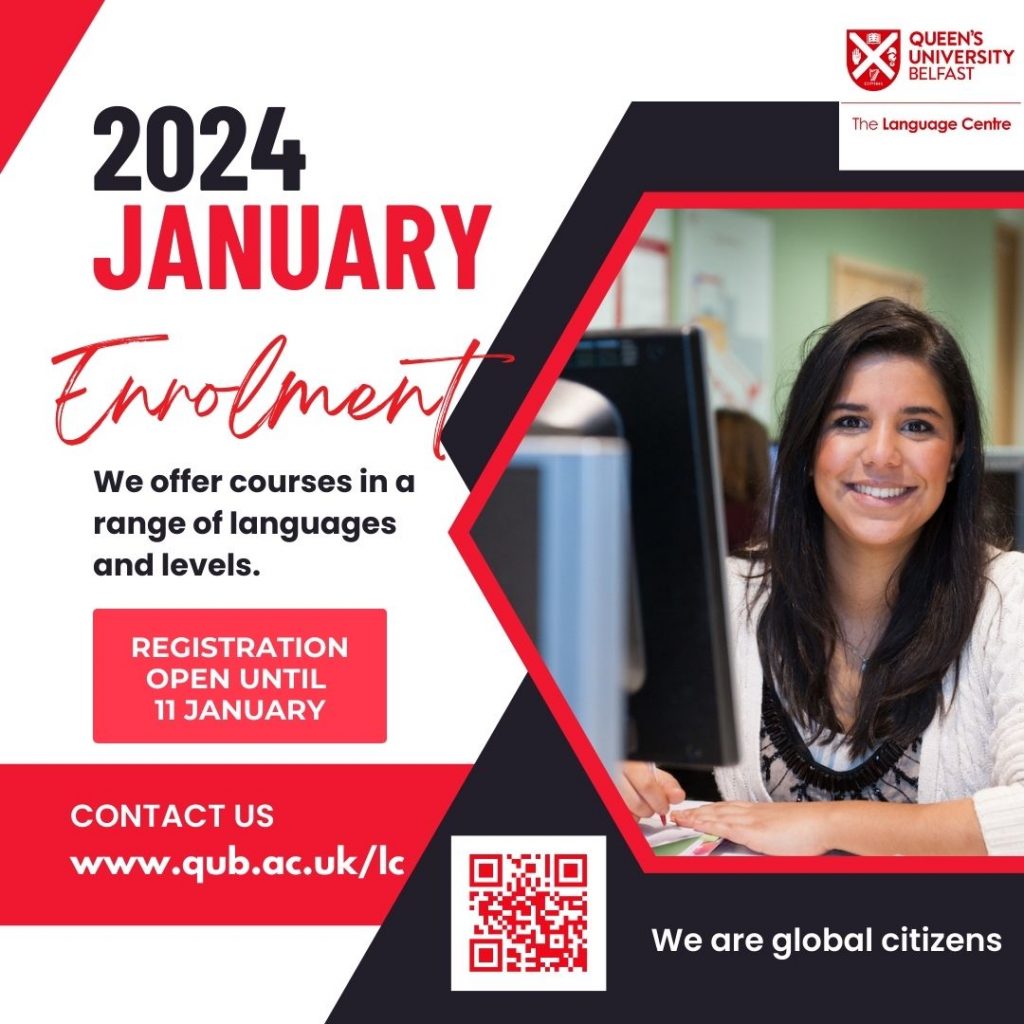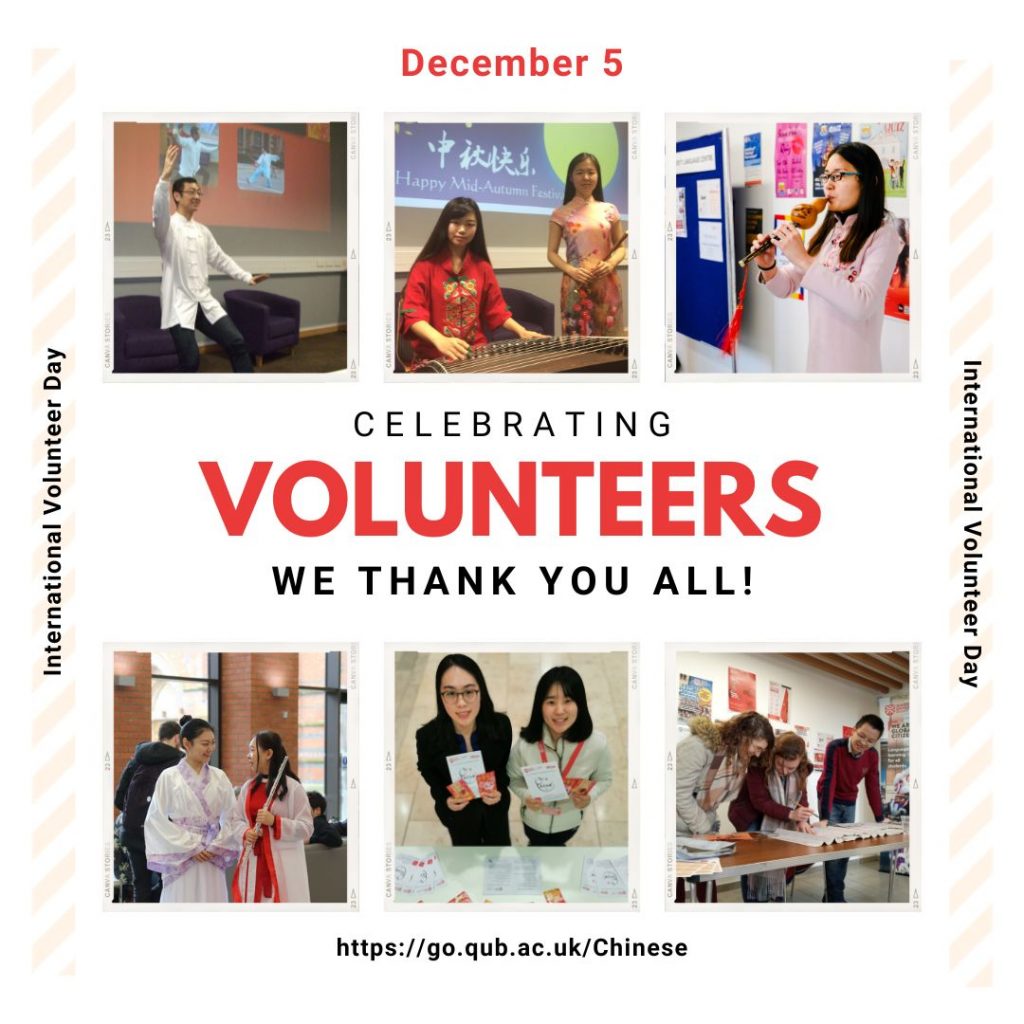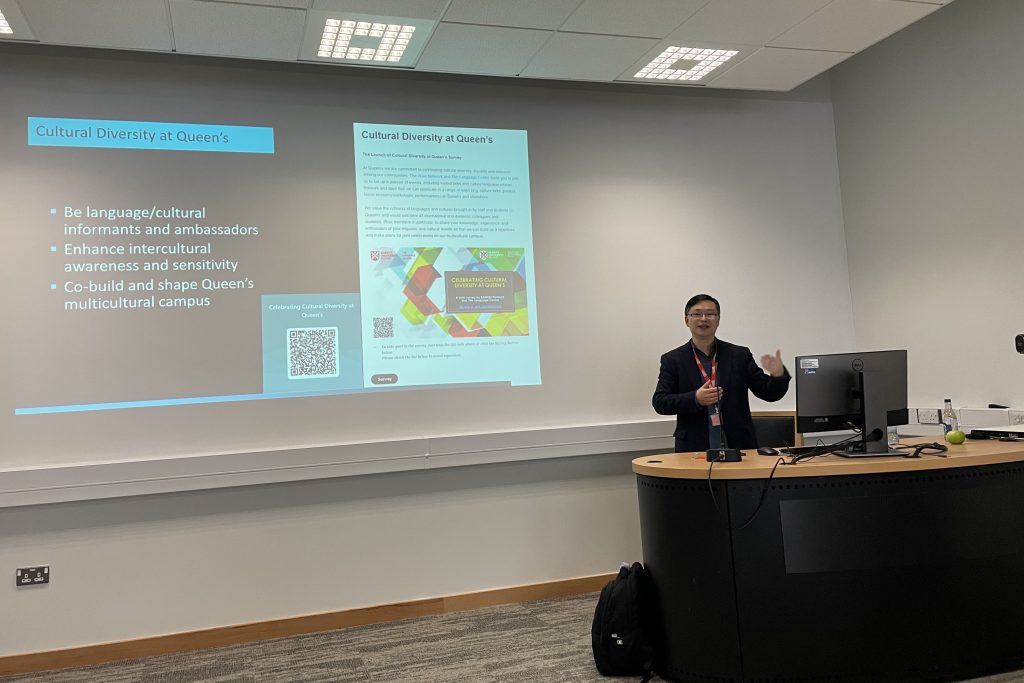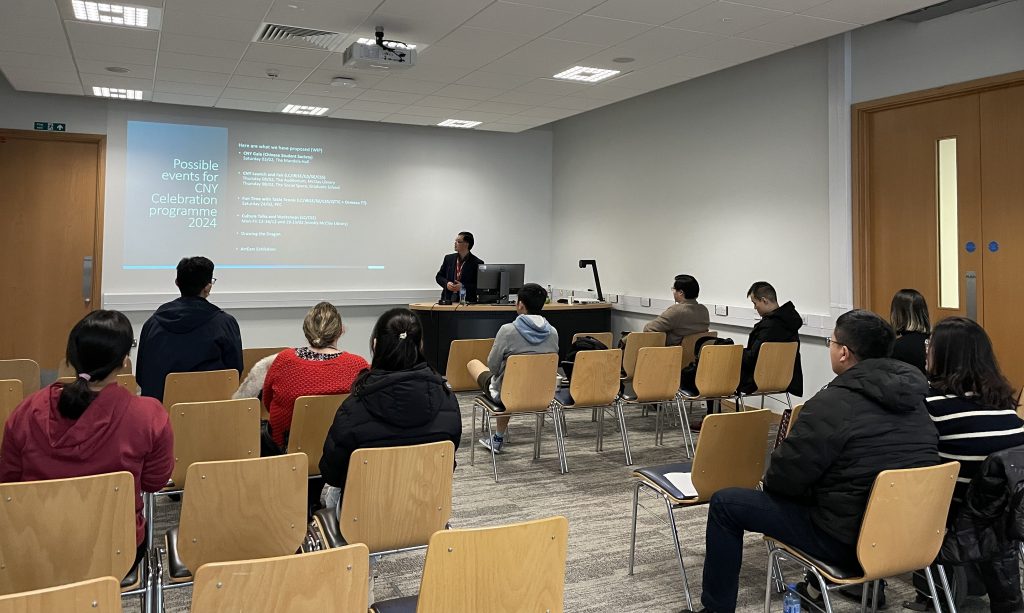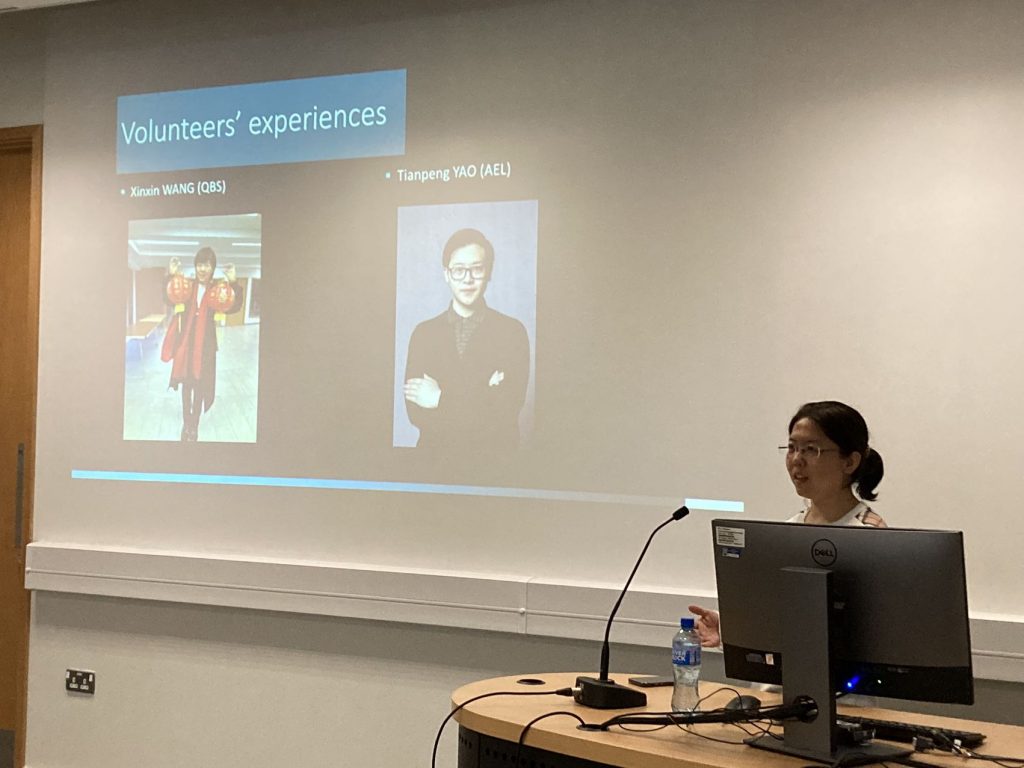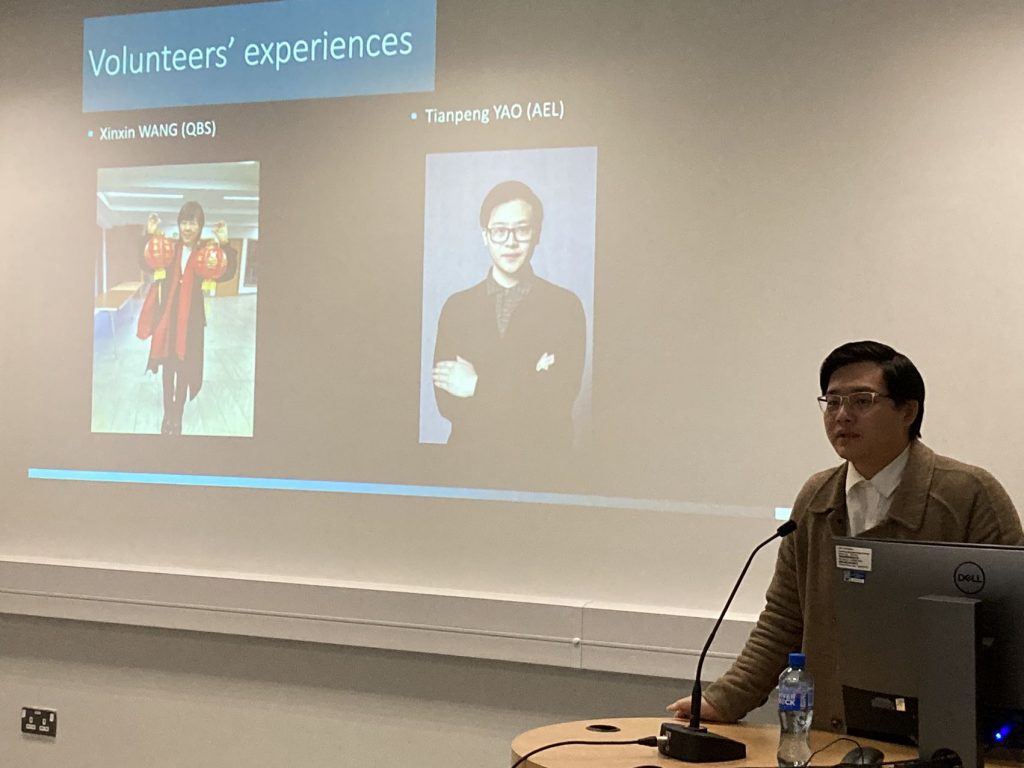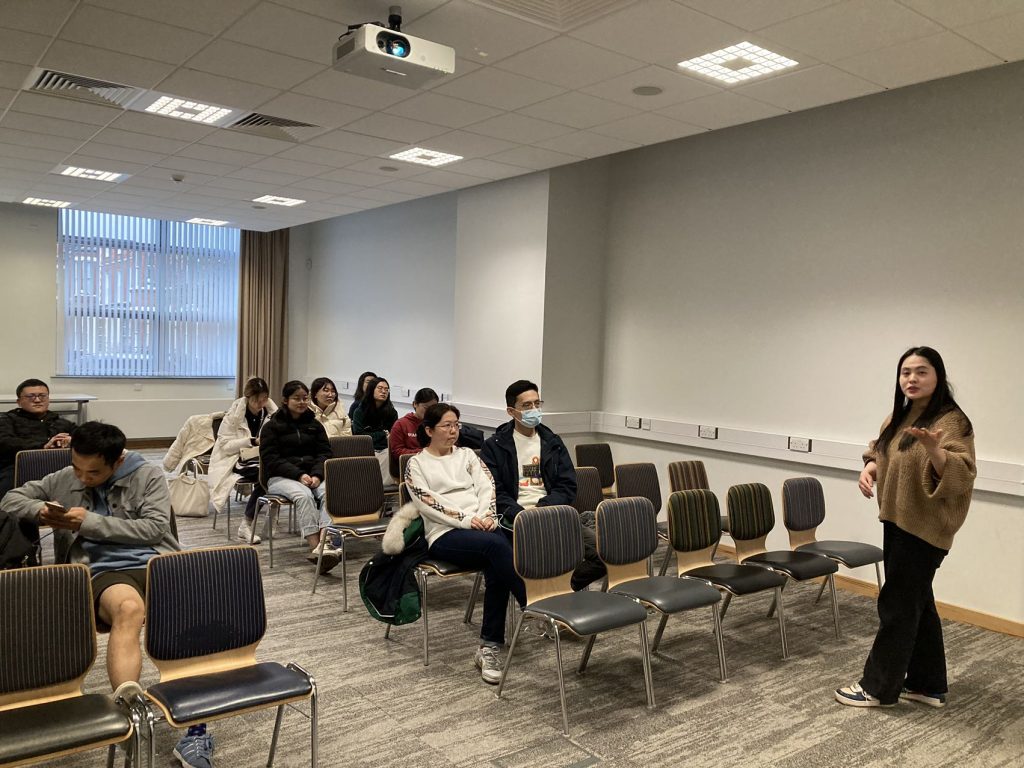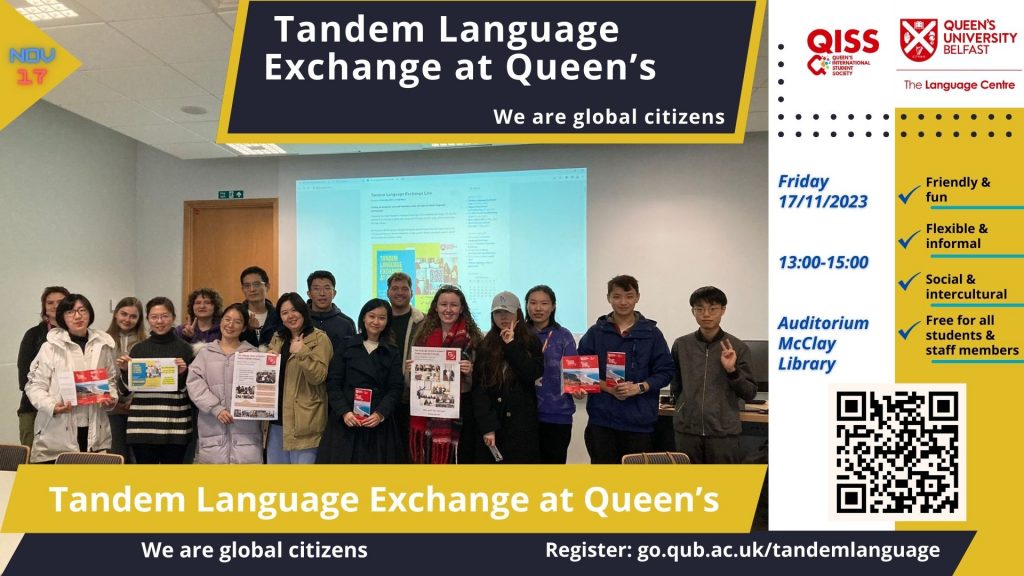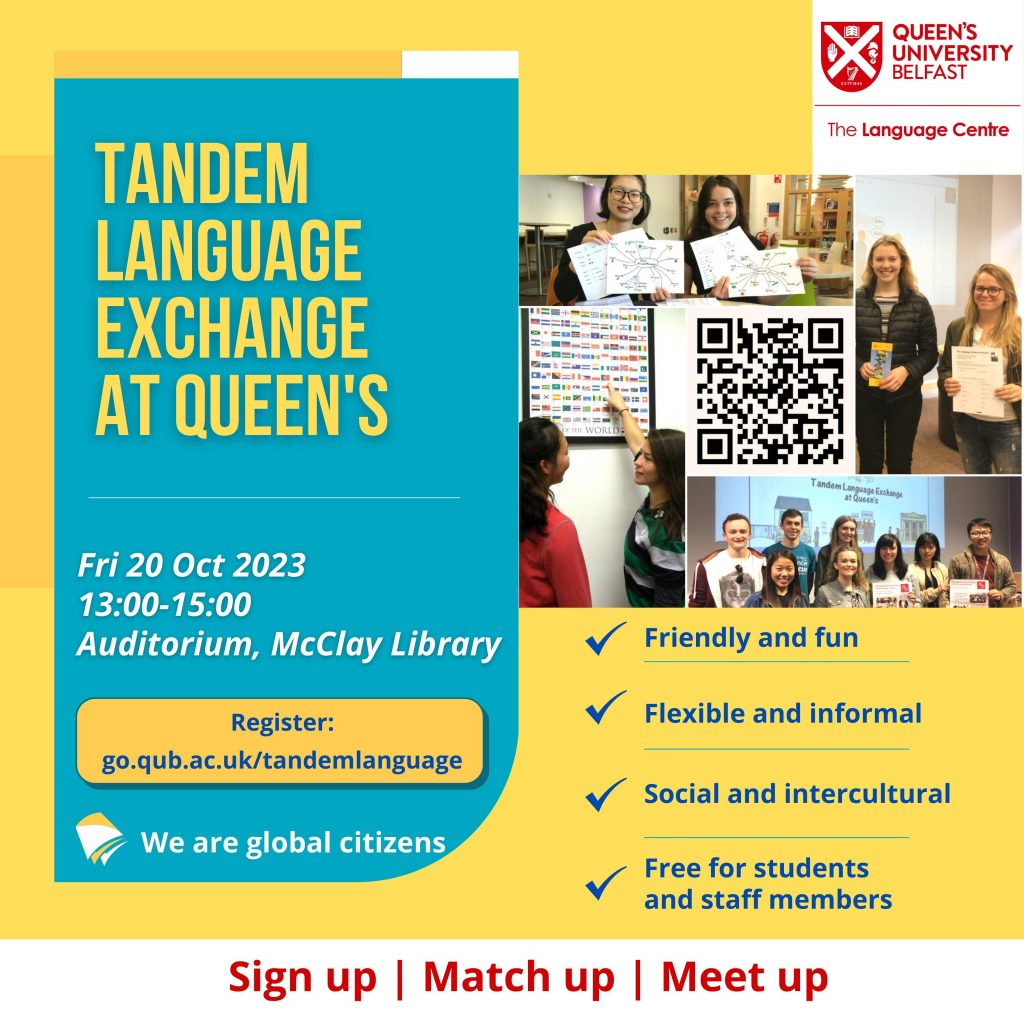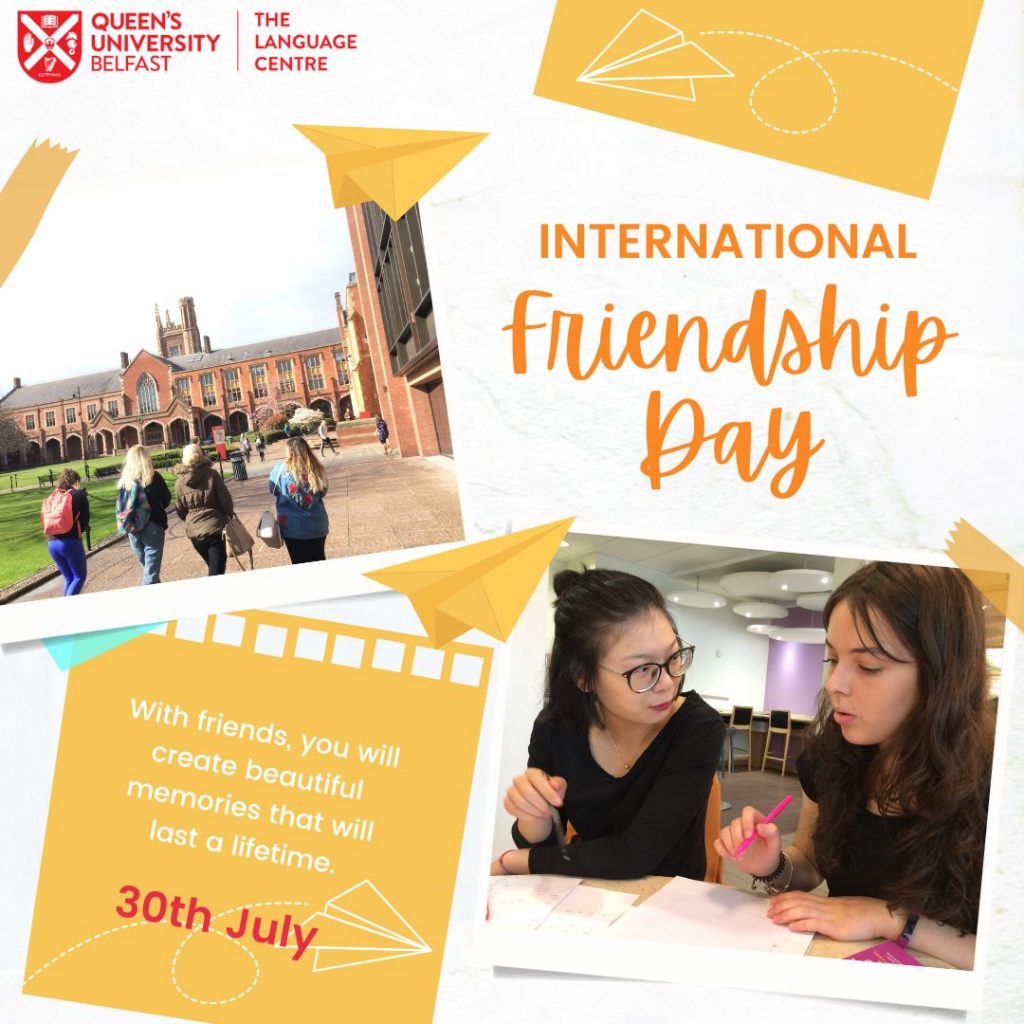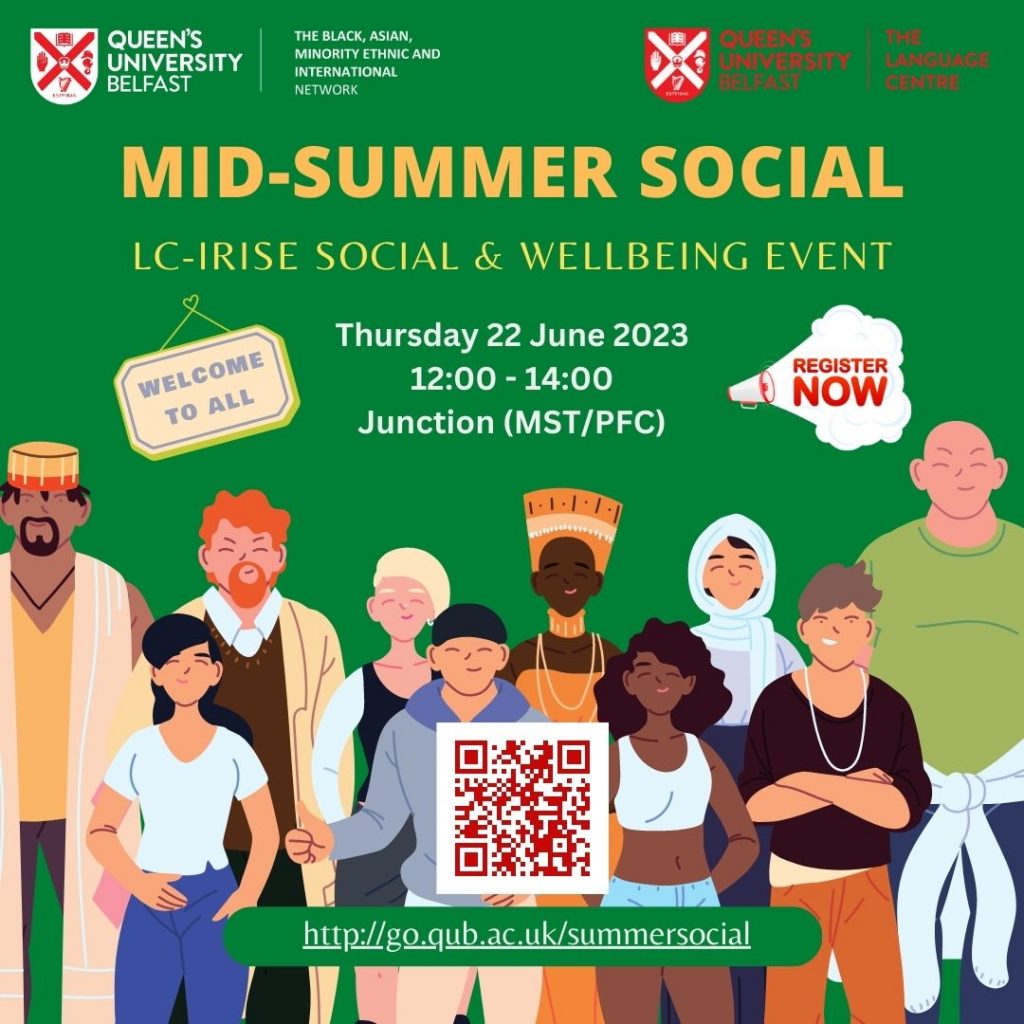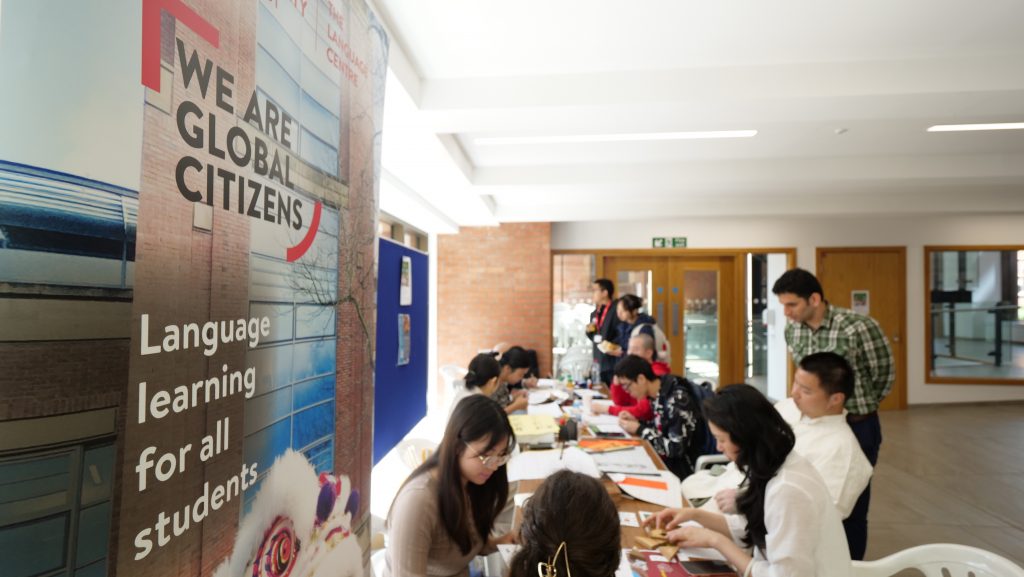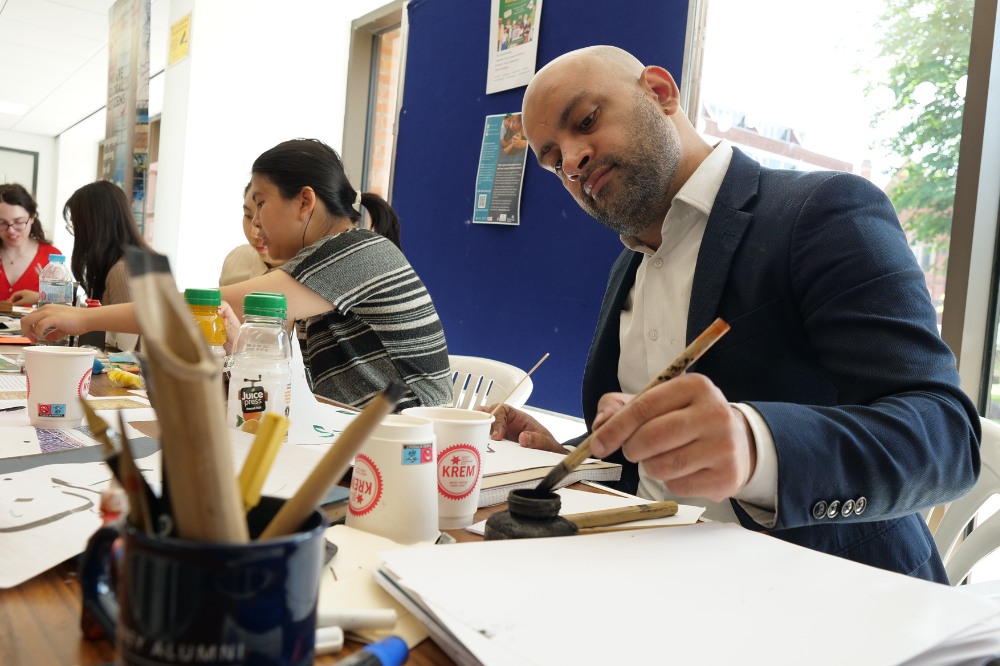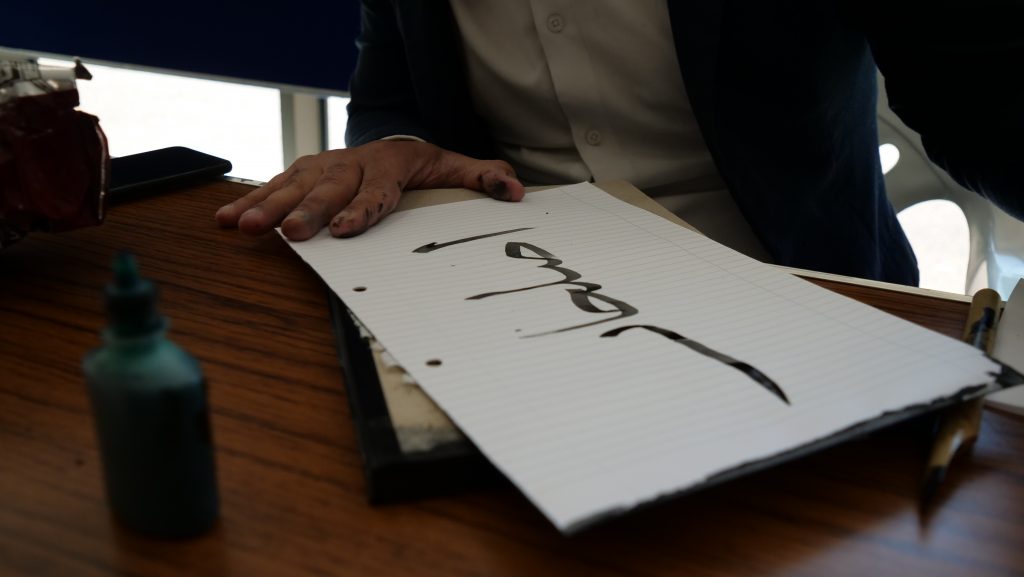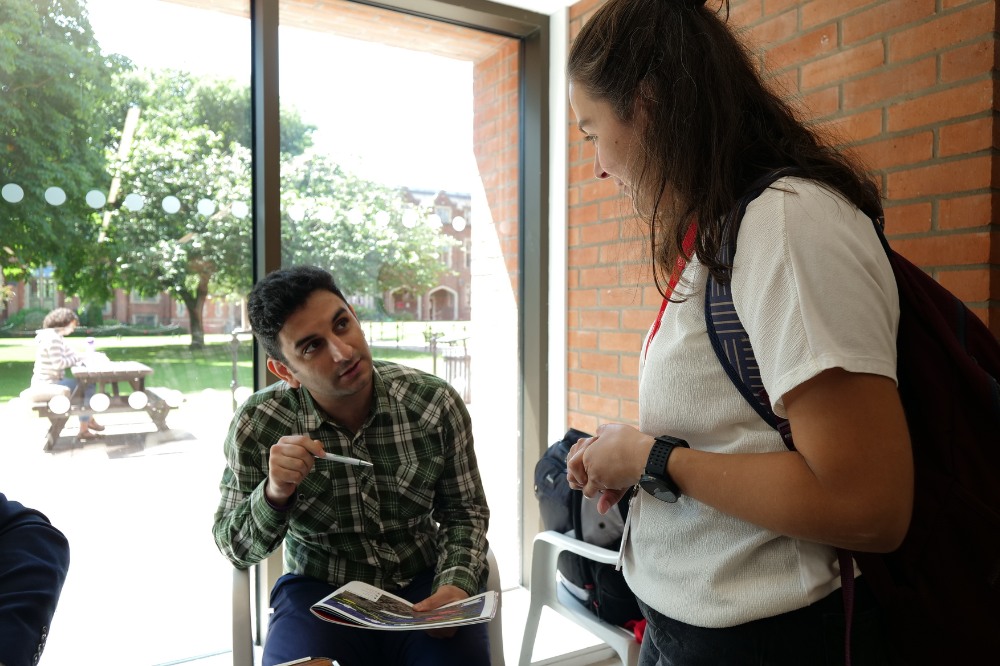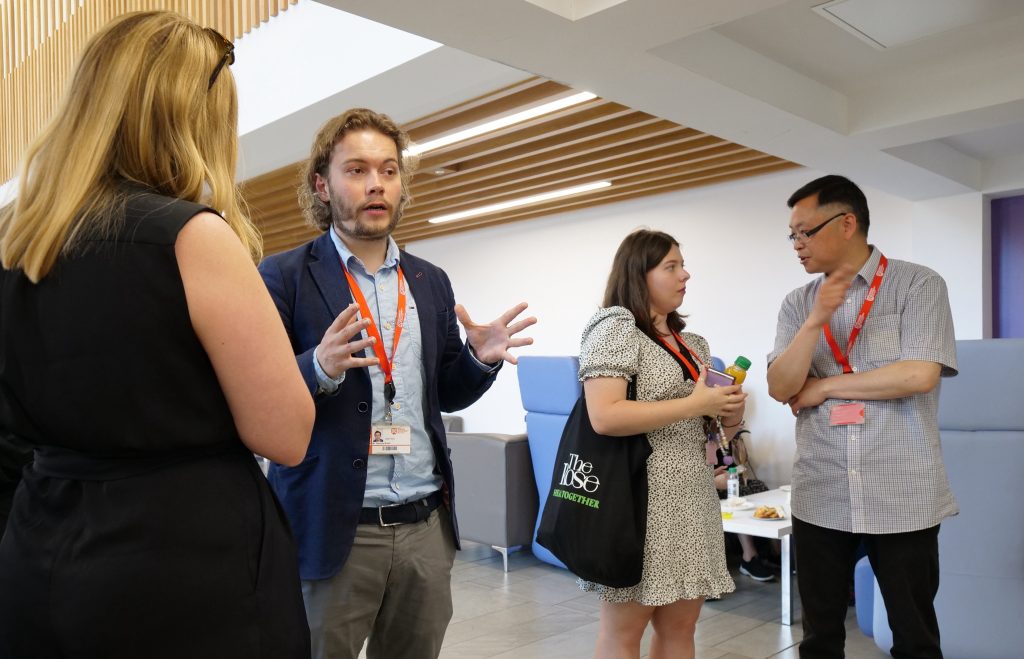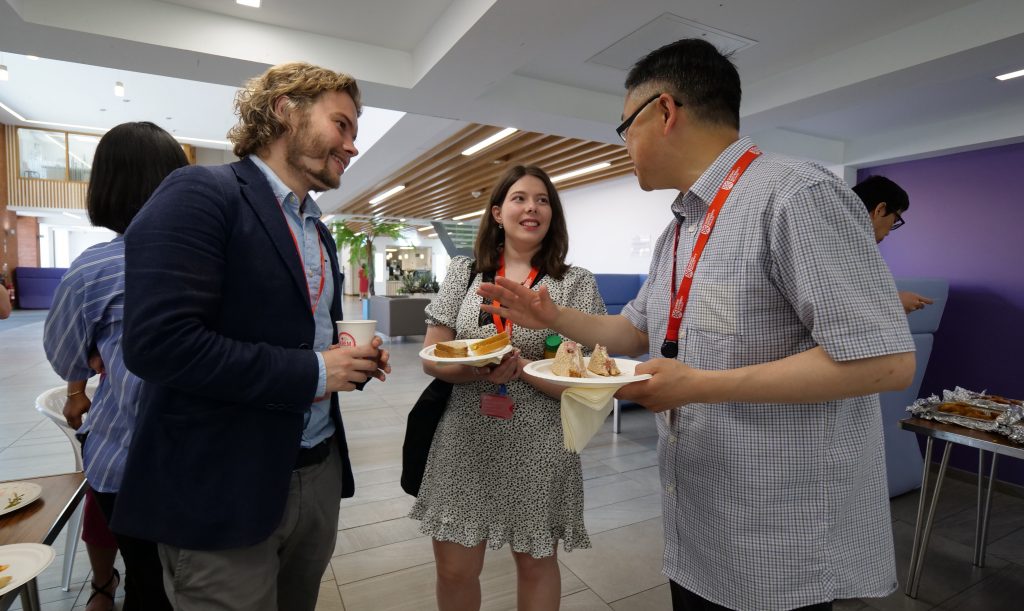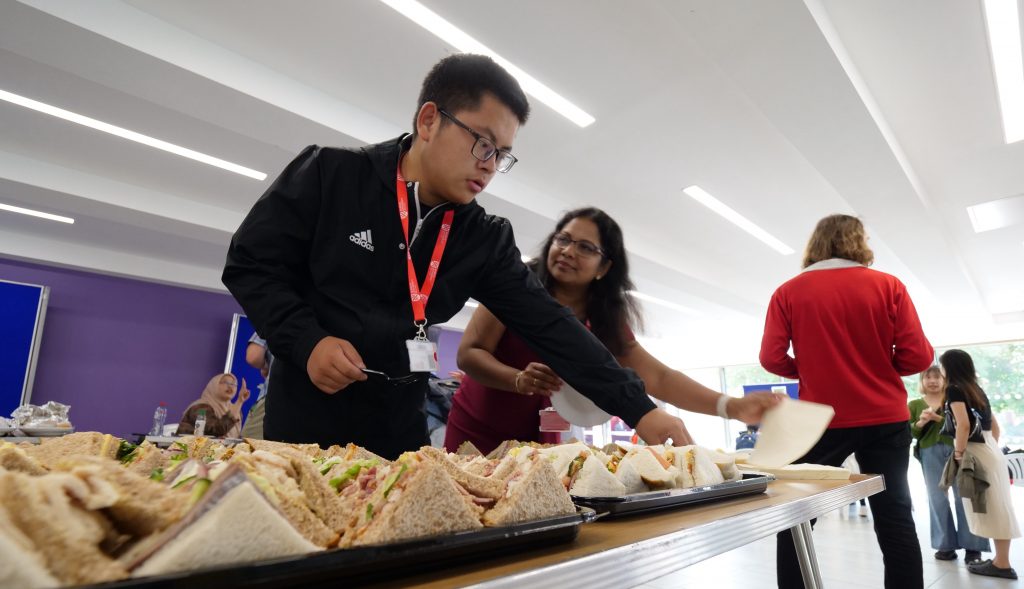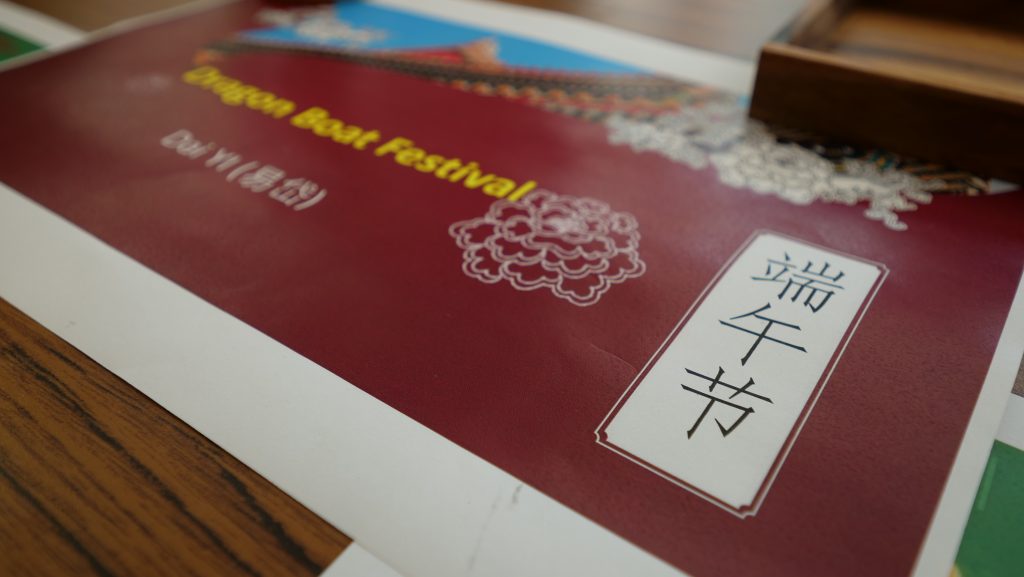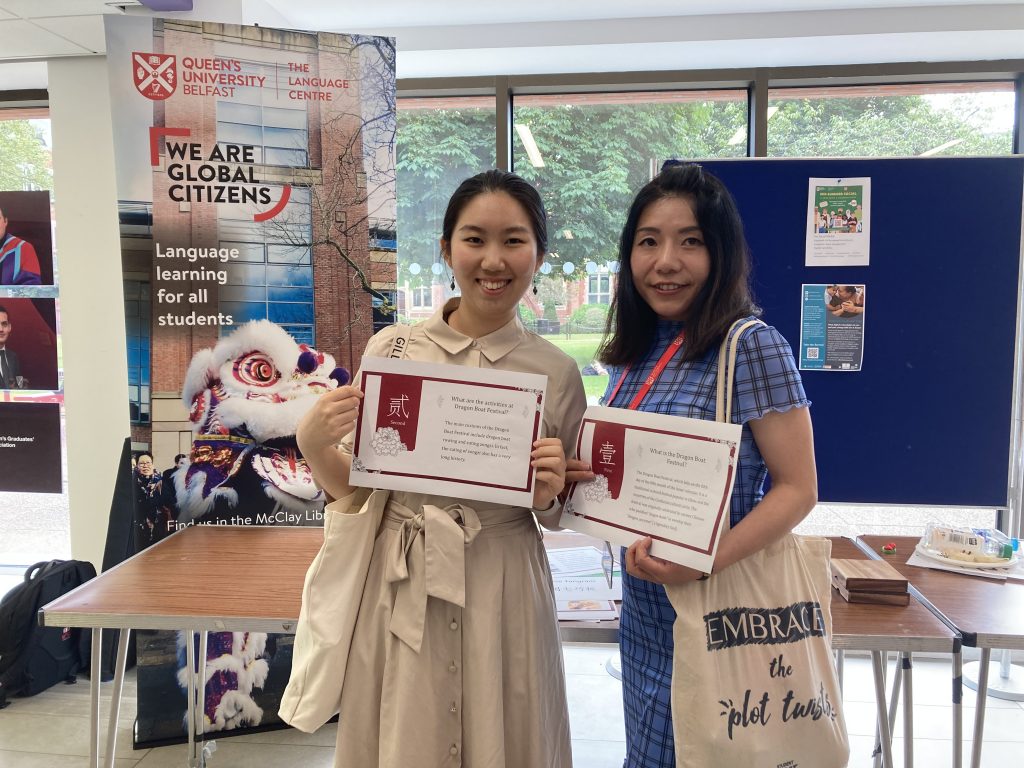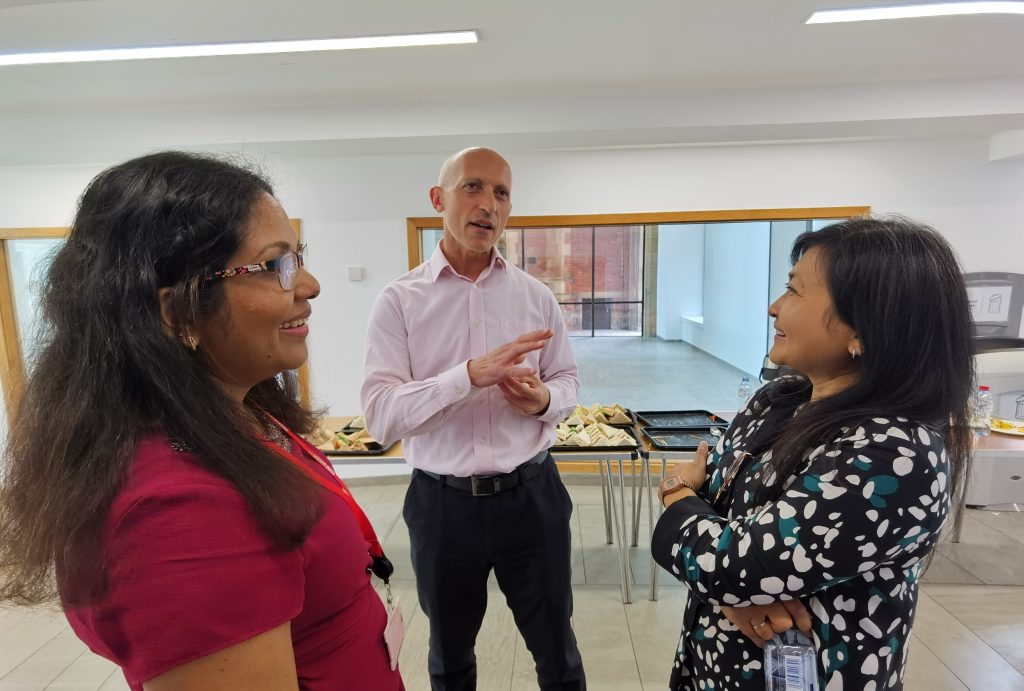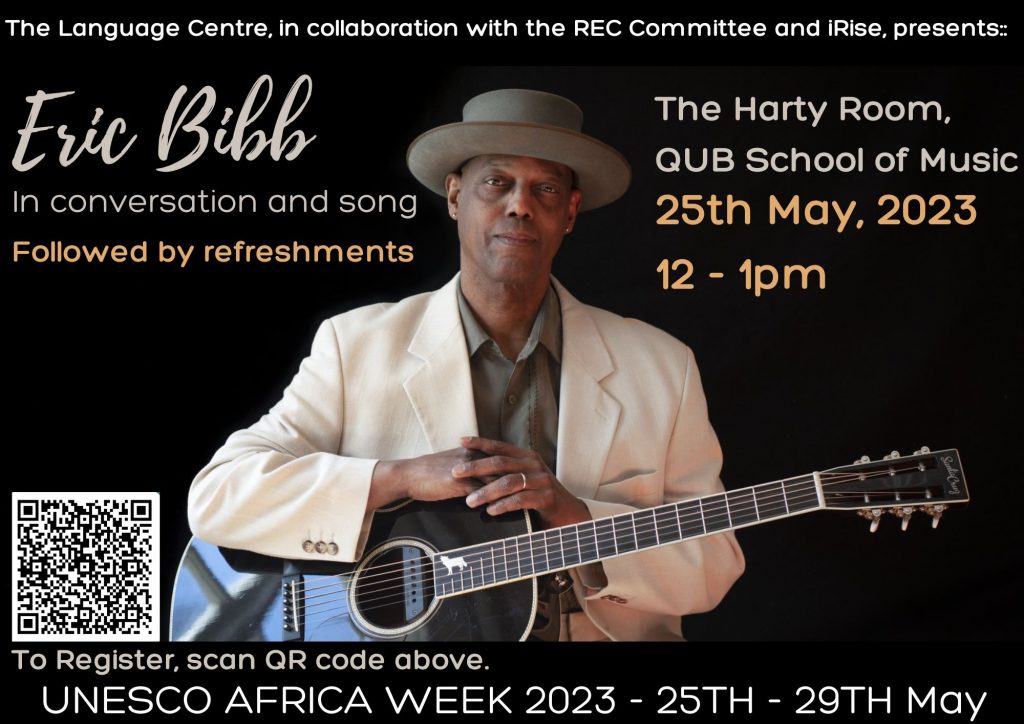Irish Language and Cultural Celebrations @Queen’s
Ceiliúradh Teanga agus Cultúrtha @Ollscoil na Ríona
The Language Centre team are delighted to invite you to join us in celebrating SEACHTAIN NA GAEILGE 2024. All events below are open to all QUB students and staff and are free to attend. If you would like to attend any of these events, please do register so that we can monitor registration numbers.

Tuesday 5th March: 12.30pm-1.30pm
Our Tráth na gCeist/Quiz gets Seachtain na Gaeilge underway here at Queen’s. Questions will be General Knowledge and will be asked as Gaeilge/in Irish. Teams will be provided with an Irish speaker, if required. Places are limited, so please book early.
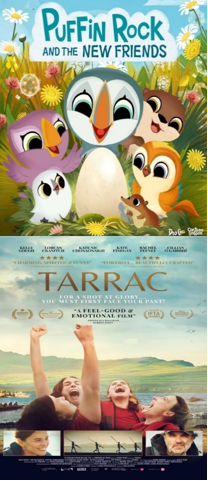
Wednesday 6th March: 10.00am
Scoil an Droichid will celebrate Seachtain na Gaeilge with us, as they visit the QFT to enjoy the Irish Language version of ‘Puffin Rock And The New Friends’.
Wednesday 6th March: 2.30pm
Acclaimed Irish Language film, Tarrac, comes to the QFT as part of Seachtain na Gaeilge 2024. This film is subtitled in English and is Rated 15. Seating is limited, so please book early.

Thursday 7th March: 12.30pm-1.45pm
Dr. Fionntán de Brún, Professor of Modern Irish in Maynooth University and Award-winning Creative Writer, guides us on a bilingual walk & talk around Queen’s and the surrounding area, exploring the history behind our local place names.

Tuesday 12th March: 12.30pm-1.30pm
Yoga Instructor, Nuala Ní Scolláin, guides us through a Yoga class…in Irish! Suitable for all levels of Yoga and Irish! Very limited spaces.

Wednesday 13th March: 1.00pm-2.00pm
We are teaming up with Queen’s Campus Run during University Wellbeing Week for a Run/Walk…in Irish! Get your steps and your ‘cúpla focal’ in one go! Choose your own distance…and pace!

Thursday 14th March: All day (9.00am-4.00pm) ‘Comhrá-thon’ is a day-long conversation…in Irish! We invite you to join us as we keep the conversation flowing throughout the day @Junction Café.
‘Comhrá-thon’ will conclude with our ‘Ciorcal Comhrá’, where we invite everyone for refreshments, music, and chat as Gaeilge/in Irish!
Email mark.harte@qub.ac.uk with your preferred 30-minute slot and the names of those taking part.

